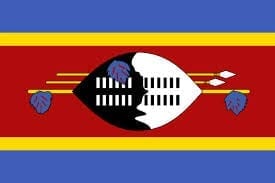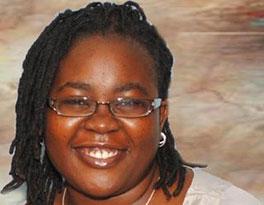
Sep 24, 2014
Workers continue to be sickened at a Swazi textile factory where dozens of workers required hospitalization earlier this month after the plant began using the dangerous chemical butyl acetate to clean clothing stains. The workers, who went to the hospital at their own expense, reported chest pains, severe headaches, vomiting and bleeding, and some collapsed.
Despite the severity of the symptoms and the number of workers affected, the union says management ordered workers back on the job before a thorough health investigation was completed. The company has denied paid sick leave to workers, including one woman who developed bloody blisters in her mouth. Union shop stewards report that the dangerous working conditions have not been addressed and workers continue to become sick, with some vomiting blood. A pregnant worker who experienced swelling was told by doctors in intensive care that her baby may not be breathing.
Butyl acetate, a flammable liquid which targets the central nervous system, should not come in contact with eyes or skin because it causes headaches, skin and eye irritation, affects the upper respiratory system and can cause unconsciousness, according to the U.S. Centers for Disease Control and Prevention.
Shop stewards from the Trade Union Confederation of Swaziland (TUCOSWA), which represents the workers, met with Ministry of Labor officials and managers at the Tex-Ray plant after the initial incident. They requested that all the employees receive medical checkups but say the company provided only a few doctors at the site and assured government officials that a health and safety committee operated in the plant, although one was not created until after workers became ill.
The company has minimized the severity and extent of the illnesses, TUCOSWA leaders say, by reporting fewer incidents of illness to the government and insisting that some workers are ill from other causes. To make up for lost production at the plant, union leaders say the company is forcing workers to toil on day and night shifts. Some 1,600 textile workers produce fleece jackets, knit tops and pants, and children’s clothes at the plant, one of nine garment and fabric factories the company runs in Swaziland.
The plant is based in Matsapha, where most of the country’s industrial factories, primarily textile production, are centered. Workers responding to a recent TUCOSWA survey among 400 textile workers in Manzini, near Matsapha, report they work in harsh and sometimes abusive conditions and say labor laws are routinely violated.
In June, the United States suspended trade benefits to Swaziland, citing the country’s serious worker and human rights violations.The benefits, known as the African Growth and Opportunity Act (AGOA), provide key economic support for countries such as Swaziland.

Sep 12, 2014
Up to 80 percent of workers across Africa labor in the informal economy, many as street vendors, taxi drivers and domestic workers. With few legal rights, most informal-sector workers make low wages and have no health care or other social protections.
Because women comprise the vast majority of workers in the informal economy, they are integral to improving wages and working conditions for all informal workers. Indeed, says Caroline Mugalla, executive secretary of the East Africa Trade Union Confederation (EATUC): “The key to development in Africa is empowering women.”
Mugalla traveled to Washington, D.C., in August, where she and nearly 40 African trade union leaders met to ensure participants in the high-level U.S.-Africa Summit included “decent work” on their agenda. Although “Africa rising” has become a popular catchphrase for the continent’s economic momentum, only the top 1 percent are benefiting. Most Africans are unable to secure decent work—which includes good wages, safe working conditions and the freedom to form unions and collectively bargain.
For many unions, the first step to empowering women workers is addressing their own power structures, a process Mugalla led for several years within the EATUC, a regional confederation that includes labor federations in Burundi, Kenya, Rwanda, Somalia, Tanzania, Uganda and Zanzibar. EATUC’s constitution was “silent on the issue of gender,” Mugalla said, so in 2009, she and others began drafting language to ensure gender equality became a key part of it.
Over the next three years, union leaders hosted regional committee meetings with women to hear their concerns and develop recommendations for the EATUC governing body. The International Labor Organization (ILO) and Solidarity Center held leadership trainings for women and assisted union leaders in crafting new language for the constitution. The union women also held the all-male general secretaries accountable for approving it, says Mugalla.
Now with passage of the new constitution, Mugalla says “women need to be trained at the shop floor so they can become leaders—stewards, regional officers, national officers.”
In reaching out to workers in the informal economy, unions in East Africa provide an opportunity for women to share in the region’s prosperity. Tanzania unions have organized female street vendors who sell beads, sandals, wood carvings and other crafts, providing them with valuable information on the market price for their goods. “Women make up the majority in East Africa, make up the majority of people living below the poverty line,” says Mugalla. “A woman who is economically empowered can made decisions on her own.”
As a collective trade union voice in East Africa, EATUC is pressing for strong worker protections in trade agreements such as the African Growth and Opportunity Act (AGOA). AGOA, which gives eligible sub-Saharan countries duty-free access to the U.S. market for a variety of products, is up for re-authorization in 2015. In the 15 years AGOA has been in effect, it has increased exports from sub-Saharan Africa, but by focusing mostly on tariff reductions, it has not spurred broader development or fostered a robust and equitable economic system, Mugalla says.
AGOA covers products made in the textile sector, which is nearly entirely composed of women workers. The EATUC is working to ensure AGOA and other such agreements do not increase the number of low-skilled jobs but provide women and young workers “employment that gives them the opportunity to access social services, job security,” says Mugalla.
Empowering women economically, fundamental to advancing progress across Africa, can only happen when gender equality is recognized across the board. Or as Mugalla says:
“The day that gender becomes a man’s issue is the day we have made a lot of progress.”
Aug 12, 2014

Solidarity Center Africa Regional Program Director Imani Countess Credit: Tula Connell
The U.S.-Africa Summit in Washington, D.C., last week stood apart from similar trade and investment meetings held by China or by the European Union because African union leaders, representing millions of working people, made their voices heard, said Imani Countess, Solidarity Center regional program director for Africa.
“Any U.S. conversation discussing economic development, trade and investment in Africa couldn’t happen without … people understanding how foundational decent work, labor rights … are to overall growth and economic development,” Countess said, speaking on RadioLabour.
The Solidarity Center and the AFL-CIO facilitated meetings, held in tandem with the U.S.-Africa Summit, that included nearly 40 union leaders from 11 countries to highlight the need for good jobs as a priority in trade and investment decisions.
“As one is looking at promoting investment in Africa, that investment has to be pro-employment, as opposed to the continued emphasis and support for growth that is benefiting a very small minority,” Countess said.
Listen to the full interview.
Aug 11, 2014

Joel Odigie says poverty and inequality are worsening in Africa, despite the continent’s economic growth.
“Africa rising” was the catchphrase buzzing around Washington, D.C., last week, as African heads of state met for a three-day summit with U.S. government and private business.
But Joel Odigie, coordinator of human and trade union rights for the International Trade Union Confederation-Africa, says working people are not benefiting from the continent’s economic growth.
“In reality, there is an economic growth in Africa that is for the 1 percent. Poverty continues to increase, inequality continues to widen,” he said,” speaking on RadioLabour. “The question of investment and trade should be the issues of how we are able to use that to address some of these concerns.”
Odigie was among 40 African union leaders meeting in Washington, D.C., to highlight the need for decent work—which includes good wages, safe working conditions and the freedom to form unions and collectively bargain—gender equality and human rights.
Listen to the full interview
Aug 8, 2014

Kwasi Adu-Amankwah, ITUC-Africa general-secretary, highlighted the need for jobs and worker rights this week in Washington, D.C. Credit: RadioLabour
During this week’s U.S.-Africa Summit with heads of state in Washington, D.C., more than 40 African trade union leaders took part in parallel meetings to call on U.S. and African leaders to adopt a decent work agenda for trade and economic growth.
In interview with RadioLabour, Kwasi Adu-Amankwah, general-secretary of the International Trade Union Confederation-Africa, discussed the focus on decent work
“Decent work … refers to the need for employment, but when people are employed, they have to have rights,” Adu-Amankwah said.
“Employment is one pillar of decent work, and the existence of worker rights also is another pillar,” Adu-Amankwah said, citing social protection as the third part of a decent work agenda.
“Then there is a question of social dialogue—when people are at work, they must have rights to speak out. So they must be able to organize and to bargain collectively.”
Adu-Anamkwah also spoke at the official Africa Summit civil-society side event, “Promoting Decent Work: Priorities for U.S. and African Leaders, Civil Society and Private-Sector Shareholders.”
Listen to the full interview.





